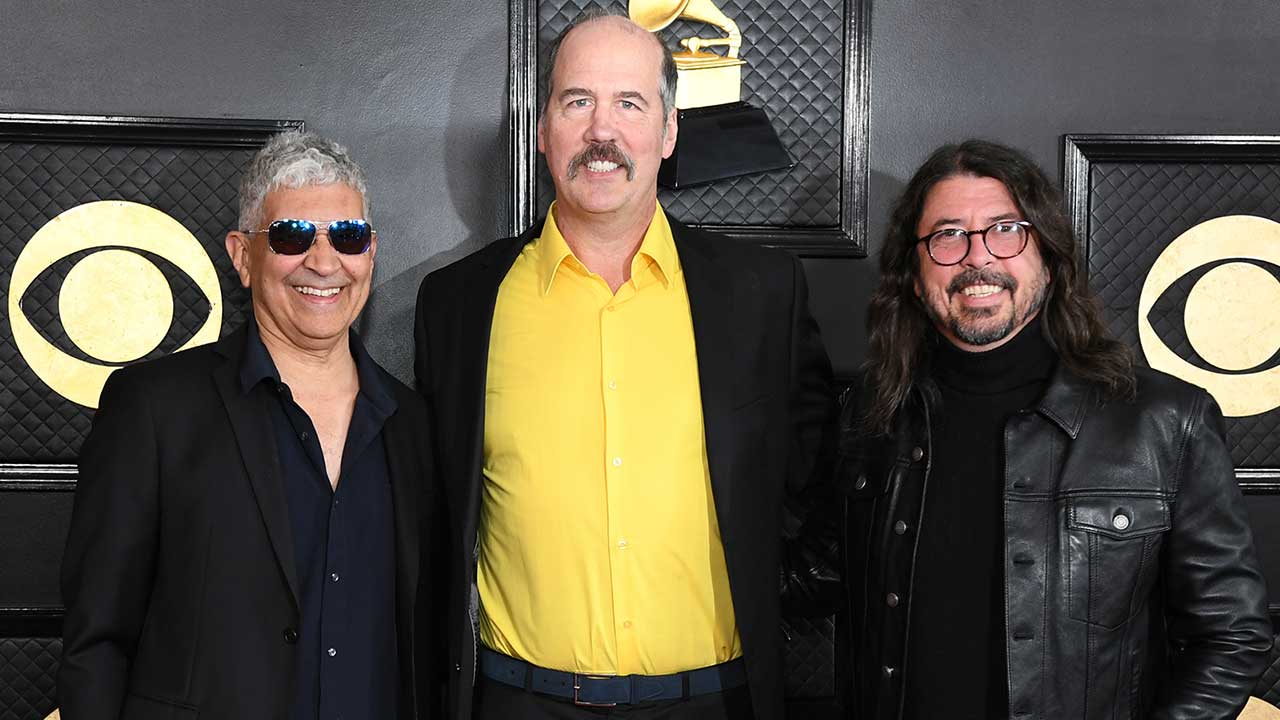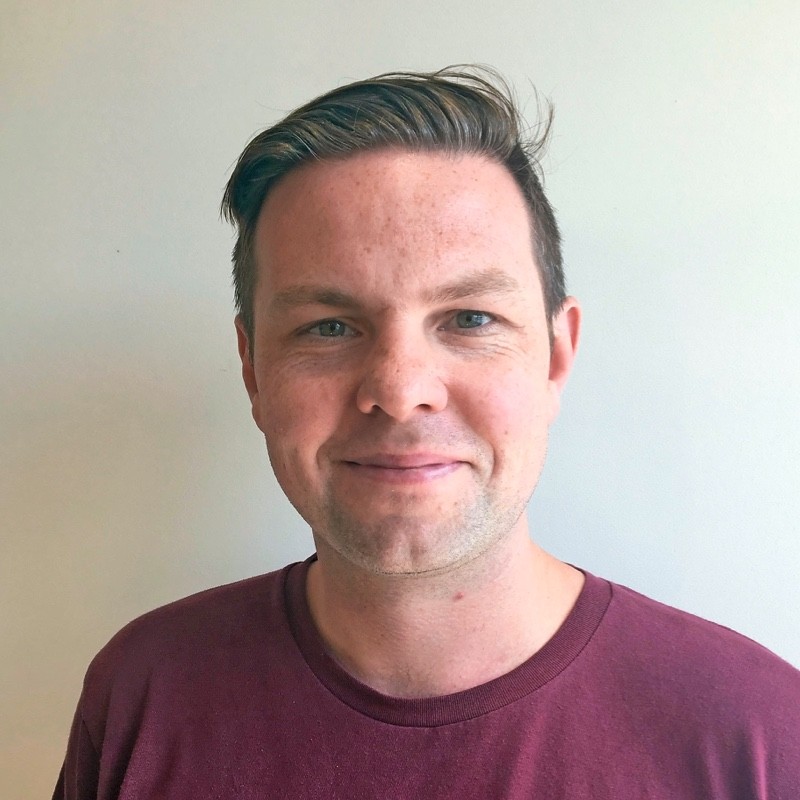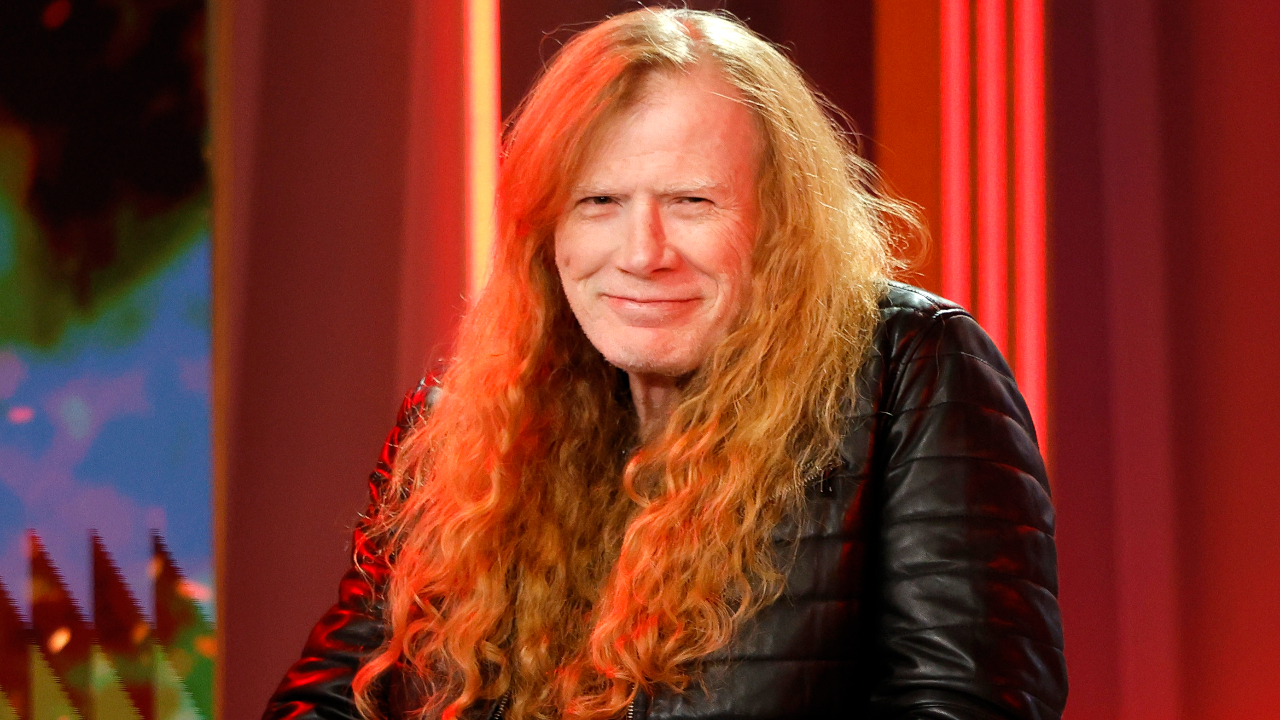How Dave Grohl initiated a Nirvana reunion of sorts on Foo Fighters’ Wasting Light
"The three of us together sitting in front of speakers and a mixing desk, that hasn’t happened in 20 years": How Dave Grohl got Butch Vig and Krist Novoselic involved in Foo Fighter’s seventh record

Select the newsletters you’d like to receive. Then, add your email to sign up.
You are now subscribed
Your newsletter sign-up was successful
Want to add more newsletters?

Every Friday
Louder
Louder’s weekly newsletter is jam-packed with the team’s personal highlights from the last seven days, including features, breaking news, reviews and tons of juicy exclusives from the world of alternative music.

Every Friday
Classic Rock
The Classic Rock newsletter is an essential read for the discerning rock fan. Every week we bring you the news, reviews and the very best features and interviews from our extensive archive. Written by rock fans for rock fans.

Every Friday
Metal Hammer
For the last four decades Metal Hammer has been the world’s greatest metal magazine. Created by metalheads for metalheads, ‘Hammer takes you behind the scenes, closer to the action, and nearer to the bands that you love the most.

Every Friday
Prog
The Prog newsletter brings you the very best of Prog Magazine and our website, every Friday. We'll deliver you the very latest news from the Prog universe, informative features and archive material from Prog’s impressive vault.
Foo Fighters’ 2011 album Wasting Light was their heaviest to date, but that wasn’t the only way in which Dave Grohl was going back to his roots on the rock titans’ seventh studio album. There was also the presence of Butch Vig on production duties, the first time Grohl had worked with him since Vig was producer on a little record called Nevermind. Then there was the return of guitarist – and sometime Nirvana live player – Pat Smear to the fold. The one that really made Wasting Light as close as you can get to a Nirvana reunion, though, was the appearance of his old bandmate Krist Novoselic playing bass and accordion on the track I Should Have Known.
“Krist and I have always been very close,” Grohl told Classic Rock. “And Butch too. When we made Nevermind, that record has changed everybody’s lives in the most profound way. It wasn’t something anybody expected to happen. And when it did it was just crazy. When we see each other now, we hug each other because we’re excited that we’re still friends. But we also sort of do it to console each other. Because when Kurt died, it just fucking destroyed our lives. We’ve always remained close. But we’ve never been in the studio together since Nevermind. The three of us together sitting in front of speakers and a mixing desk, that hasn’t happened in 20 years.”
It was no accident that Novoselic appeared on that particular song. Grohl had started writing it with someone else in mind, but lines such as “‘I should have known that it would end this way... I should have known, look at the shape you’re in’ tell you who his thoughts turned to as the song unfurled. “As I elaborated on it, I thought, there are definitely connections,” Grohl explained. “I’ve definitely felt that way before, especially with Kurt, where I was afraid this was going to happen. So to have Krist come down and play on that song was kind of a risky move. I explained to him, I said: “Yeah, you know, it’s one of those songs that I’m sure people are going to think it’s about Kurt.” And he basically said: “Oh, fuck it. That’s okay.”
It all tied in to Wasting Light’s themes of looking back at the past through the prism of life and death. “Being with Butch and being here in this environment made me think a lot about starting over, and rebirth, and making your way through tragedy and coming out the other side. And realising: “God, I never want to die.” There definitely seems to be a theme.”
It was that feeling of seizing the moment that sparked the idea that it should be a heavy rock record, he said. Because why not? “As we get older there’s this urge to mellow, because it just seems age-appropriate. But then I thought, ‘Fuck that! I’m 42 now. I don’t know if I’m going to be able to make this record when I’m 46 or 49. It’s my last chance. So I’m going to go for it. We were making a record with Butch, Pat’s back in the band, I have all these huge fucking rock riffs, I can still scream for three hours – let’s go!’"
Sign up below to get the latest from Classic Rock, plus exclusive special offers, direct to your inbox!
Niall Doherty is a writer and editor whose work can be found in Classic Rock, The Guardian, Music Week, FourFourTwo, Champions Journal, on Apple Music and more. Formerly the Deputy Editor of Q magazine, he co-runs the music Substack letter The New Cue with fellow former Q colleague Ted Kessler. He is also Reviews Editor at Record Collector. Over the years, he's interviewed some of the world's biggest stars, including Elton John, Coldplay, Radiohead, Liam and Noel Gallagher, Florence + The Machine, Arctic Monkeys, Muse, Pearl Jam, Depeche Mode, Robert Plant and more.

